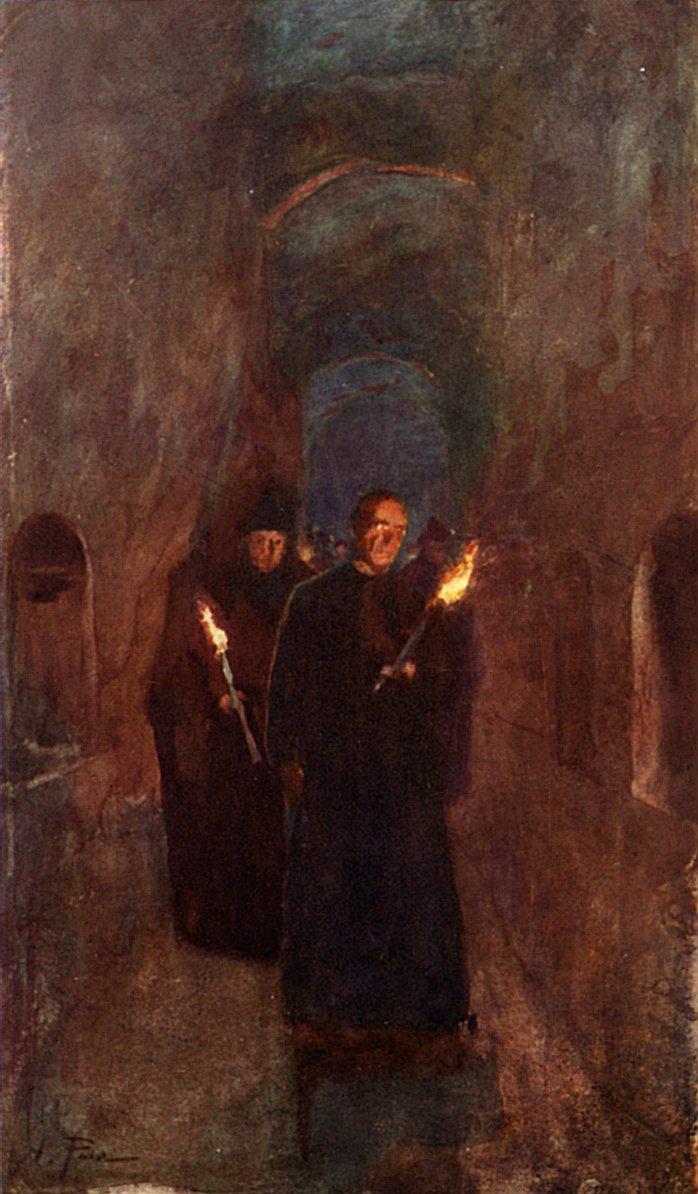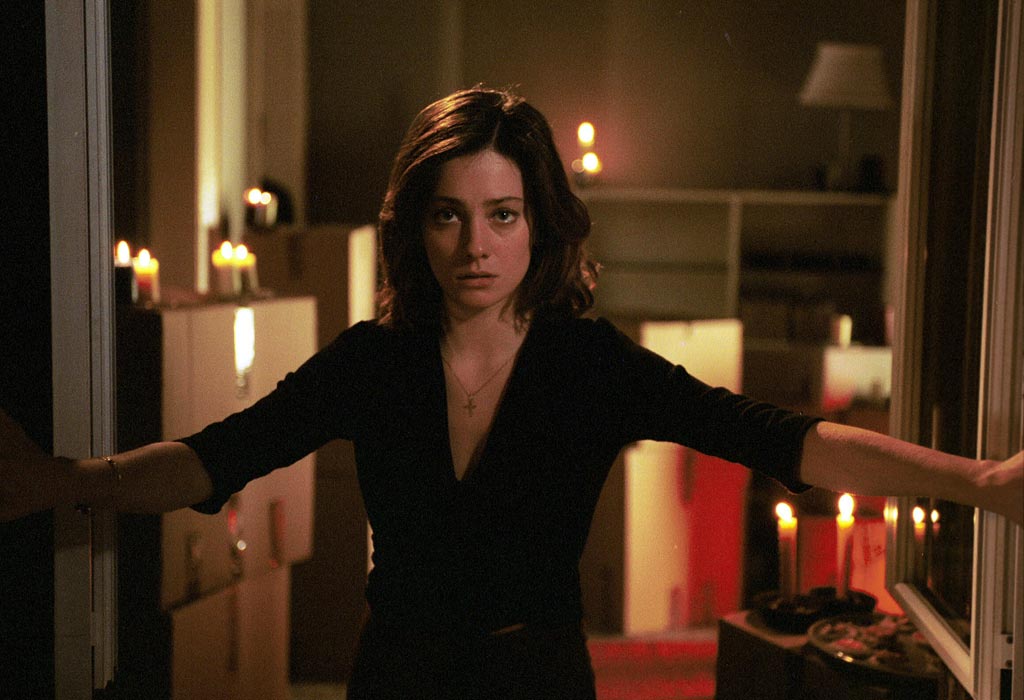Those Who Walk Away
 Sunday, June 22, 2014 at 03:31
Sunday, June 22, 2014 at 03:31 Peggy was very romantic – in a dangerous way. She thought marriage was another world – something like paradise or poetry – instead of a continuation of this world. But where we lived, it couldn't have been more like a paradise. The climate, the fruit on the trees right outside the door. We had servants, we had time, we had sunshine. It wasn't as if we were saddled with children right away and up to the elbows in dishwater.
 This novel's title is ultimately explained in a casual aside from our third-person narrator who, we suspect, could have probably devised something saltier. It is only very late in our tale, when the narrator relinquishes her hard-won objectivity to excoriate one of her characters, that we realize the title's appropriateness. The accusation is cowardice, and the accused is a young, rich, intelligent, and decent-looking widower by the name of Rayburn "Ray" Garrett.
This novel's title is ultimately explained in a casual aside from our third-person narrator who, we suspect, could have probably devised something saltier. It is only very late in our tale, when the narrator relinquishes her hard-won objectivity to excoriate one of her characters, that we realize the title's appropriateness. The accusation is cowardice, and the accused is a young, rich, intelligent, and decent-looking widower by the name of Rayburn "Ray" Garrett.
Ray has everything a young man could wish for materially, as well as something of infinitely greater importance: a taste and a love for art. He has little to say about literature (he quotes this poem in a fit of passion) or cinema, but this being the 1960s, there may not have been as much access to the plenitude of films now literally at our fingertips. No, Ray's love has always been and always will be painting. It is then a sad discovery, and one that occurs early on in our novel and Ray's fictional existence, that his taste and passion for painting do not extend into any creative talent. That is to say, while Ray Garrett may know a dazzling genius's landscapes and portraitures when he sees them, he cannot possibly mimic their accomplishments. So he is relegated, as are so many professors of English with vast and exquisite libraries, to collecting them. His family's fortune allows him an insouciant existence, one that takes a very unplanned turn when he meets Peggy Coleman. Peggy is even younger and richer than Ray; unlike Ray, however, she has not been afforded the bliss of an unbroken home. Her mother would die young and Peggy grew up with her foul-tempered and hack painter of a father, Edward, who will come to play a far more prominent role in Ray's life than either would ever care to imagine. Especially after almost a year of newlywed bliss, residence on Mallorca with "all the ingredients that were supposed to make a marriage go [–] time, money, a pretty place to live, [and] objectives," Peggy, not yet twenty-two years of age, decides that "the world is not enough," and that getting on in this world is not worth the trouble.
The rest of the novel could easily have comprised Ray's inner thoughts on why this all occurred, a diary, in other words, of his eternal guilt. For very laudable artistic reasons, Highsmith grants us only snippets, distant arias from a world Ray shall never know again. Instead of speculate desperation about someone who remained very much a stranger until her death, Ray digs into his own past, his own shortcomings, with the faint hope of excavating a golden key to his puzzle:
From his father, an oilwell worker in his youth, a self-made man, now a millionaire with an oil company of his own, Ray had inherited wide cheekbones. It was an American face, slightly on the handsome side, hopelessly marred by vagueness, discretion, the second thought, if not downright indecision, Ray thought. He disliked his appearance, and always saw himself leaning slightly forward as if to hear someone who was speaking softly, or as if incipiently bowing, kowtowing, about to retreat backwards. And he felt that because of his parents' money, he had had life too easy.
At first glance this passage may seem rashly composed (witness the echo of "thought" in the second sentence or the pleonastic "retreat backwards"), but this is in all likelihood intentional, the purling brook of worries and images that flow through every mind. A later comment will buttress the notion that Ray's greatest fear involves his own mediocrity, the newness of his family's affluence, and his inability to capitalize on what every artist dreams of having: namely the time and resources to realize his artistic potential. His compromise to himself was to marry a budding painter and establish a gallery of European painters in New York, both of which, of course, substitute a proximity to genius for a share in its creative acts. That Ray ends up in Venice with his former father-in-law, whom he rightly understands as someone of limited artistic ability who has long since forsaken any development in that field so as to cash in on faddish garbage, we must attribute to the conceits of fiction. How and why they will engage in one of the nastiest cat-and-mouse games undertaken by two otherwise well-adjusted citizens, however, we must leave to the curious reader.
Critics have been predictably dismissive of Those Who Walk Away, perhaps because there are no compelling characters like Tom Ripley to loathe and envy. Yet in one respect, the novel remains one of Highsmith's defining works. You may consider Ripley's harpsichord lessons, leisurely readings in German, French, and Italian literature, and his beautiful French mansion and even more beautiful French wife all indications of high culture and great intelligence, and you may forget that all these niceties swathe a murderous psychopath. Ripley is a marvelously memorable literary creation, one that has been likened to Highsmith herself in her venomous disdain of her birthplace and its social Darwinism, but there is only so much to make of such a comparison. What really drove Highsmith we can only hope to uncover through the medium of her more introspective works, such as the terrible tragedy of Rayburn and Edward. It is in their tale that we find Americans of true artistic sensitivity living in Europe, understated but clear alcoholism, and a certain inability to express oneself fully that is the mark of self-imposed literary exile. The most eloquent words, some of which are quoted at the beginning of this review, are exchanged when the two Americans – one a failed painter, the other a sellout – are not impeded in their locutions by Italians or Edward's French girlfriend Inez. The city of Venice itself assumes the role of hero, an antagonist to both men, whose sins (Ray's being cowardice and, in a way, betrayal, Coleman's being wrath and its explosive consequences) will confound them in the end. So when Ray, who survives more than one brush with death, actually believes he may be dead and that the surrounding realm holds but phantasms and erstwhile joys, he is reminded that Venice's "dark canals were very real." And what could be realer to the weary than time's blackest shroud?




